Kyle’s Review: Catalyst–A Rogue One Novel by James Luceno
I hate to use the term “required reading”, but if you have even a glimmer of interest in Rogue One, that’s exactly what Catalyst is. This is a grand prologue to what looks to be a very unique entry into the Star Wars film franchise. The novel itself not only sets the stage for Rogue One, but gives us a new look into the inner-workings of how difficult it was to construct the first Death Star (and why it took so long). This review will spare no spoilers, so beware, because here we go…
Right off the bat, I’ll let you know that Orson Krennic, in my opinion, is the star of Catalyst. Sure, Galen and Lyra Erso have a great story, but Krennic really steals the show. Krennic is certainly a villain, and like the worst kind, he doesn’t even realize it. He’s like an evil Steve Jobs, if you will; great at surrounding himself with brilliance, but to the singular point of exploiting the genius of others to elevate his own status. Where Steve Jobs helped drive geniuses to give us better computers, phones, and tablets; Krennic manipulates the braintrust to build a weapon of terror. Krennic is like an over-ambitious, corporate alpha-dog; the more you get to know him, the more you despise him. Krennic is a scheming, duplicitous, back-stabbing Imperial officer who will step on anyone to get what he wants. The worst part about Krennic is that he knows exactly what he is building and what it is capable of and he only becomes more emboldened as the story goes on. To Krennic, the Death Star is not a weapon that will murder billions, it’s just a project that will get him further ahead in the Empire.
Orson Krennic never meets Darth Vader in Catalyst. Vader is occasionally brought up, but he is regarded as something of a nebulous authority. The amount of information we have on Darth Vader spans volumes. Darth Vader encapsulates two (going on three) trilogies, was the subject of a great comic series, has popped up in Rebels, and all you really need to say is “Darth Vader”. Krennic certainly strives to best Vader, although he’s never met him, and it makes me think that Vader’s appearances in Rogue One are, “You better check yourself, Krennic.”
Despite the fact that Krennic never directly interacts with Vader, he does interact with Wilhuff Tarkin. Much of Catalyst could be a companion novel to Luceno’s previous SW novel, Tarkin. Tarkin and Krennic hate each other. It is a hate that is fostered throughout most of the novel. I know there were some rumors of Tarkin showing up in Rogue One, and at this point I would be very surprised is they are not true. Tarkin takes a journey through this novel, as well.
Tarkin refers to the Death Star as “your floating ball” when speaking to Krennic early on in Catalyst. One of the most interesting aspects of this novel is Tarkin’s reluctance to embrace the military industrial complex. I was surprised how much time Luceno spent on Tarkin –especially since the character had his own novel not so long ago– but, I’m not complaining. The Tarkin we meet at the beginning of this novel is a stoic, military-man of the Republic. By the end of the novel, Tarkin is deeply involved in the industrial military complex of the Empire. On one hand, it’s so he can keep a better eye on Krennic, but on the other, Tarkin realizes what the Death Star will come to represent for the Empire.
As I mentioned early, Orson Krennic is sneaky and a double-crosser. He’s playing pretty much everyone he interacts with in Catalyst, and Tarkin is no exception. Tarkin is the only one who really figures out the game Krennic is playing and plays along. By the end of the novel, Tarkin puts Krennic in his place and I’m excited to see exactly where Krennic is at in the Imperial pecking order when Rogue One picks up the story. Despite Tarkin winning the contest for control of the Death Star, everything we learn about Orson Krennic implies he’s not about to lay down.
Galen Erso is the antithesis of Orson Krennic. Almost every moral dilemma that is thrown at Galen is met with the same simple, genuine desire for him to do good. Galen Erso’s genius is something he, as well as his wife Lyra, want as a force for good in the galaxy. We are introduced to Galen as he is working in the private sector of energy development during the days of the Republic, not long after the Clone Wars have broken out. The Separatists take control of the planet he and Lyra live on and Galen is taken prisoner. During this period of his confinement, Lyra gives birth to their daughter Jyn, which presents an terrible uncertainty as to whether wife and daughter will be used against Galen to get him to do whatever the Separatists want.
As this unfolds, Orson Krennic has just been tasked in the development of the Death Star’s super-laser by the Emperor’s right hand man, Mas Amedda. Krennic and Galen were both in a Republic developmental program, Futures Program, as well as many other scientists we meet in the story. Most of the scientists went on to work for the Republic, but Galen was determined to stay as far away from any chance his knowledge could be used for military purposes. Krennic gets his assignment by offering up Galen’s knowledge, which means Krennic now has to figure out a way to break Galen out of his imprisonment. Once that is done, Galen is indebted to Krennic, and the slippery slope of working for the Republic, which transforms into the Empire as the novel progresses, begins for the Erso family.
Lyra Erso is the absolute rock of the Erso family. She is a very protective wife and mother, and sees through the bull$#*^ Orson Krennic tries to pull on the Erso’s. A brilliant mind in her own, Lyra is also a true believer in the Force. I’ve been trying to think of a real-world comparison and the best I could think of was how yoga instructors often invoke the mindfulness of Zen and Buddhism. Lyra is skeptical of the smear propaganda the Empire puts out about the Jedi, but her fascination with the Force transcends her concern for the Jedi. Lyra is something of an environmentalist, and what ultimately convinces her of the Empire’s true nature is when she watches worlds ravaged for their resources to be poured into the Death Star. These worlds were classified as Legacy by the Republic, which meant they were off-limits for any type of development or mining. Lyra sees that designation brushed aside and all the resources of the planets consumed down to the bedrock.
The search for raw materials and ore definitely reek havoc on different parts of the galaxy, but the kyber crystals are the most important element to the Death Star. In the early part of Catalyst, Galen’s work is primarily synthesizing kyber crystals to use in power facilities. Kyber crystals are sacrosanct to the Jedi, but once the Jedi Order is disbanded, the Empire has full access to the Jedi cache.
Galen and Lyra spend a great deal of their time analyzing the potential use of kyber crystals, as Krennic tricks Galen into working for the Empire, promising him his research will go toward developing a universal renewable energy design that the Emperor will share with the galaxy. Galen thinks he has his dream job while Lyra is highly skeptical of Krennic’s promises. Krennic is masterful at reading people and from the beginning he knows there is an adversary in Lyra. Galen learns that the crystals have extraordinary power, yet they are only reactive to living things. The more he and Lyra study the crystals, the more they understand why the Jedi were able to harness them through the Force, as well as why the Jedi were so protective of them. Galen feeds into the Empire’s view that the Jedi were selfish with their knowledge in the beginning of his research, but by the end of the story I got the sense he doesn’t know what to believe. Lyra is really the true believer in the Force, and Galen approaches all his morality through science.
If you were hoping Catalyst would introduce us to Jyn, you may be a little disappointed we don’t get more of a look at her. I think Luceno handled her story great. We don’t really get to know Jyn, as she is a baby and a very young child throughout the novel. More what we are getting a look at are the values of her parents and what they will impart on her. We know from Rogue One trailers that we get a look at Jyn as a child, but I’m particularly interested to see how Jyn goes from the happy little girl we know by the end of Catalyst to the one we see broken out of imprisonment by the Rebel Alliance. Catalyst is the story of Galen and Lyra Erso much more so than Jyn, but I think the knowledge of what her parents experienced and what she will know about the Empire will only make her motives more compelling when we finally see Rogue One.
Another essential character in Catalyst is a smuggler named Has Obitt. Has is recruited by Krennic early on to help assist the Ero’s rescue. The story continues on and we see an indifferent smuggler grow to despise the Empire. His moral compass is more closely aligned with the sympathetic disposition in Lyra. Has has a very clear sense of right and wrong, but he’s been living most of his life in the middle. He plays a very important role and is woven in and out of all the main character’s lives. By the end of the story, Has not only helps the Erso’s escape Krennic’s clutches, but he is in an interesting role as a double-agent in the ongoing conflict between Takrin and Krennic. At first, I was very bored with the cliched smuggler in the beginning Catalyst. It’s a formulaic archetype that is often used in Star Wars stories, but Has’ story is very cool by the end of the novel. Not only does he help the Erso’s, he also forms a partnership with a character we’ve met before and look forward to seeing again next month, Saw Gerrera.
Saw comes into the picture toward the end of the novel. We get a glimpse of what will no doubt become a cell of the Rebel Alliance, but for at that point, is a small group of Clone War veterans who are compelled to fight against the Empire. It has been hinted at that the Rebel Alliance regards Saw as something of an extremist in Rogue One. That is not as evident in this book, but he is certainly bold and does not fear putting his life on the line for what he views as good. The best example is the daring rescue of the Erso’s from Coruscant at the end of the novel. It’s a pretty risky play, but Saw doesn’t hesitate and does everything he can to spirit the Erso’s away. This rescue is what introduces he and Jyn which again stirs my anticipation of Rogue One so I can learn what became of their relationship. In the trailer, Saw sounds quite different than the person we meet in Catalyst, so it should be interesting to see how much of a role he’s had in Jyn’s life.
James Luceno certainly has pedigree when it comes to authoring Star Wars novels. Catalyst is a fine edition to his catalogue. Luceno writes with distinct cadence and has a great ability to give the reader a wealth of information while progressing the story. There’s a lot of very, very technical information in Catalyst, but at no point did it feel dry or confusing. Luceno did a great job of making the case as to exactly why the Death Star took so long to build. If you have enjoyed James Luceno’s contributions to the Star Wars Universe, Catalyst is no exception.
The Star Wars Story Group should also be applauded for undertaking this tale that fills in a huge gap of the saga’s history. Their collaboration with Luceno on this project is a huge reward for fans that are hungry to get as much canonical information as is dished out. Catalyst answers many questions, but opens the door for many more that anyone reading will no doubt look to Rogue One and future stories to answer.
Wrapping this up, I would give Catalyst 4 out of 5 kyber crystals.
This is a novel you definitely want to get your hands on before December 16th. The fact it’s a new James Luceno Star Wars novel should be reason enough, but like I mentioned before, this sets the stage for Rogue One and gives the reader unique insight into the Empire and the undertaking that was the Death Star. An added bonus is that this is an extremely easy read and if you are a Star Wars fan you will have no trouble burning through all the pages within days.
Kyle Larson lives in Portland, Oregon. When he's not running trails, he's reading and writing.

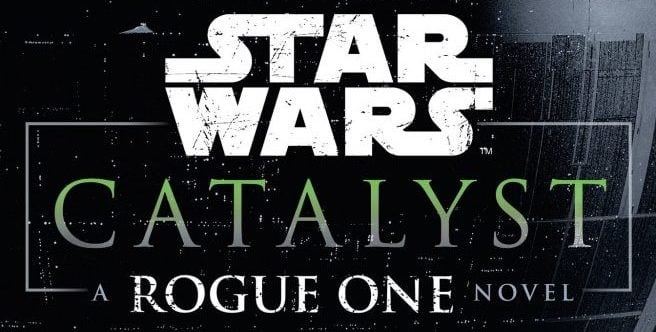
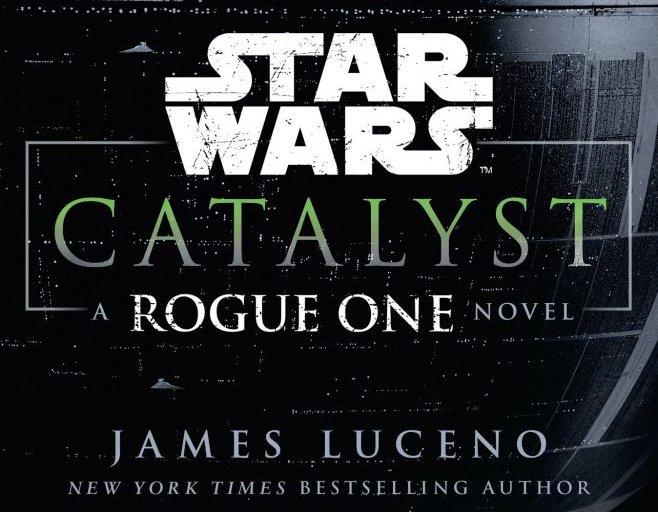
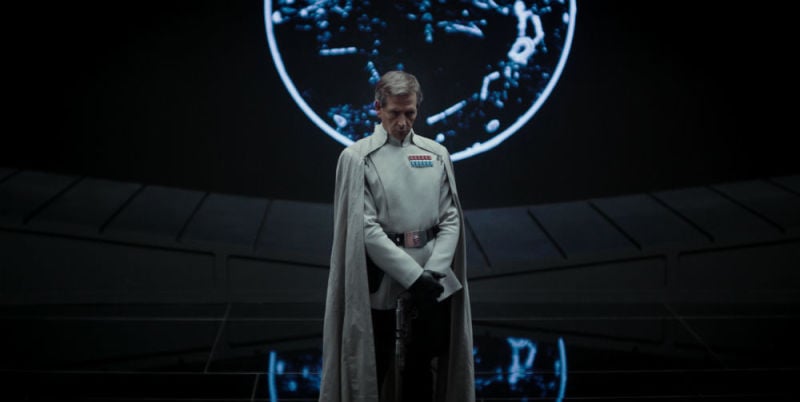
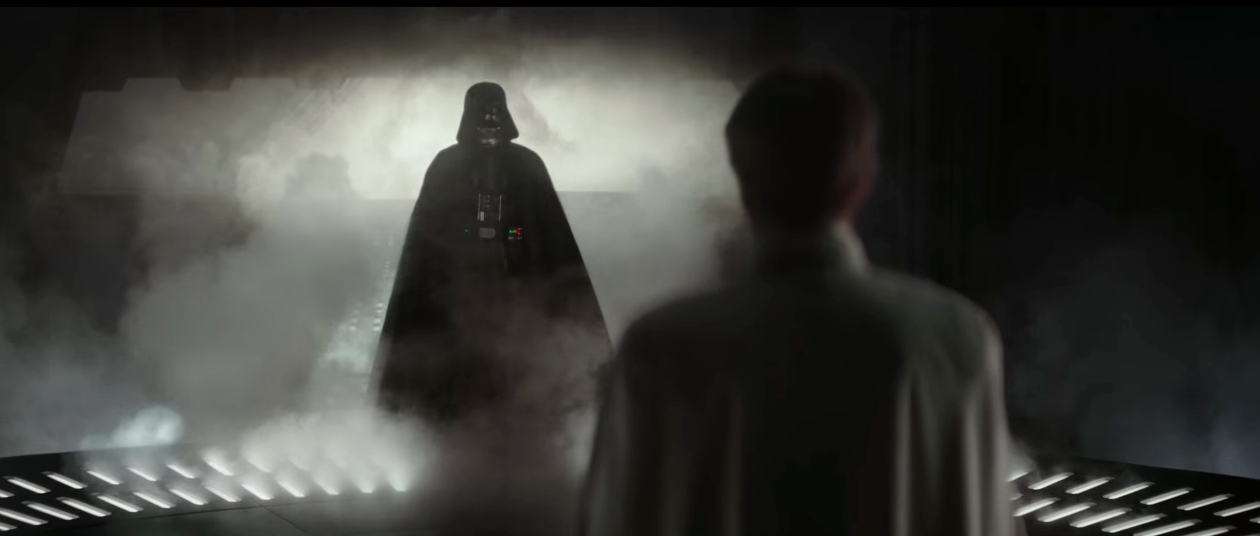

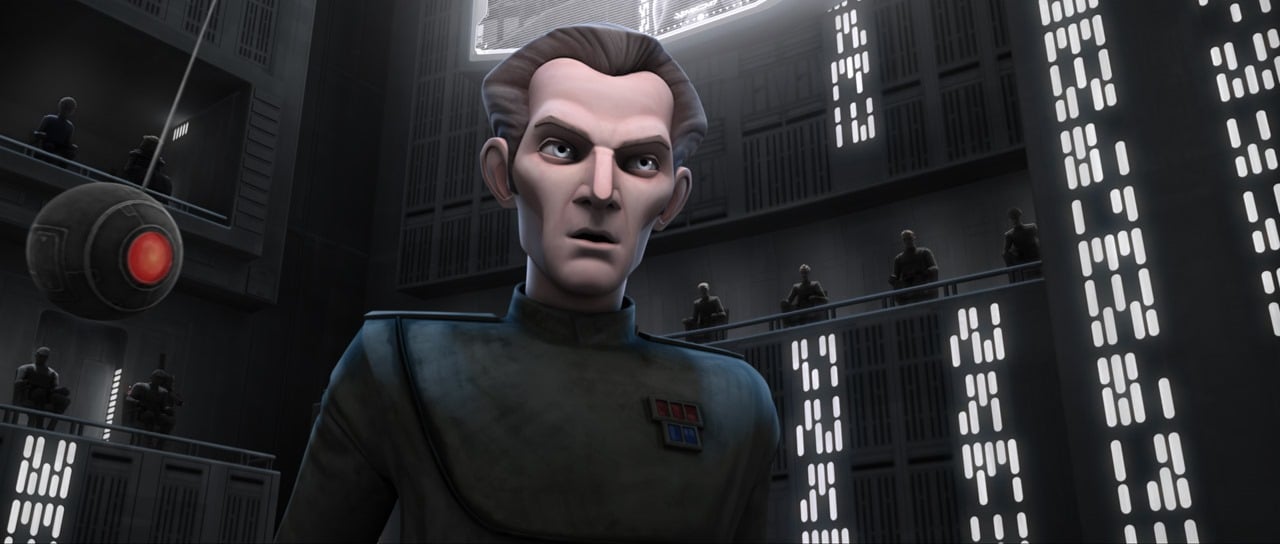
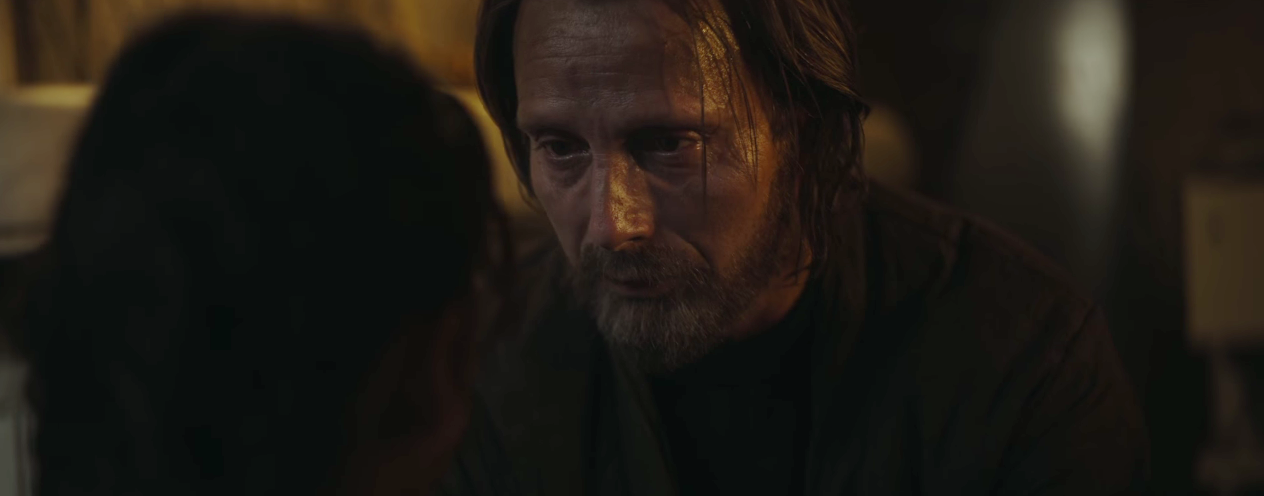
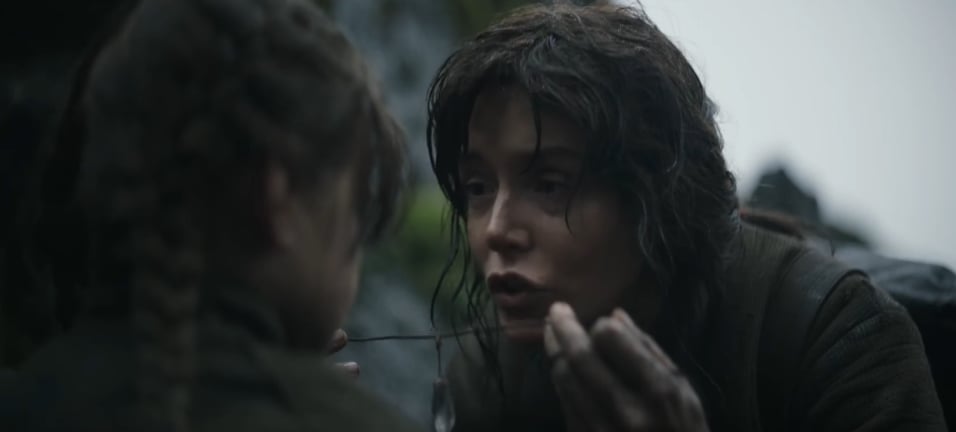
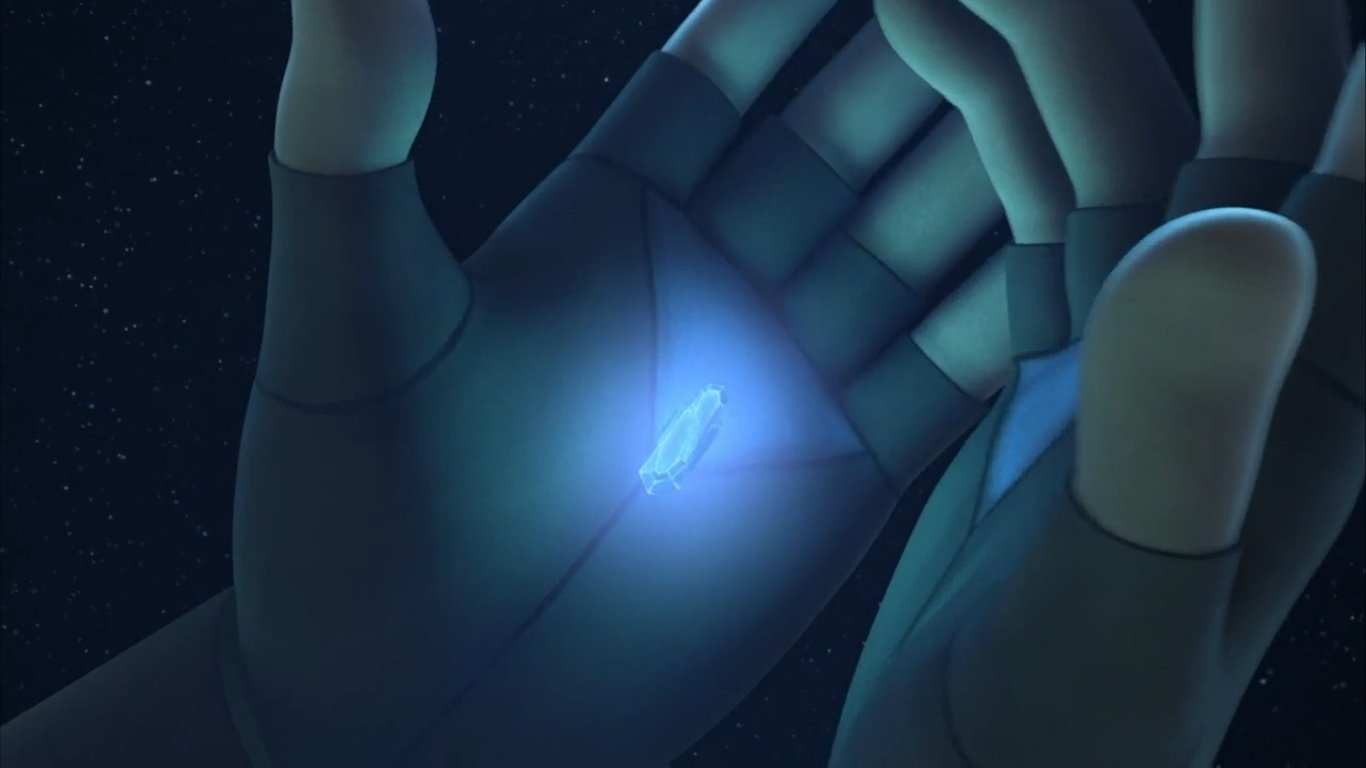

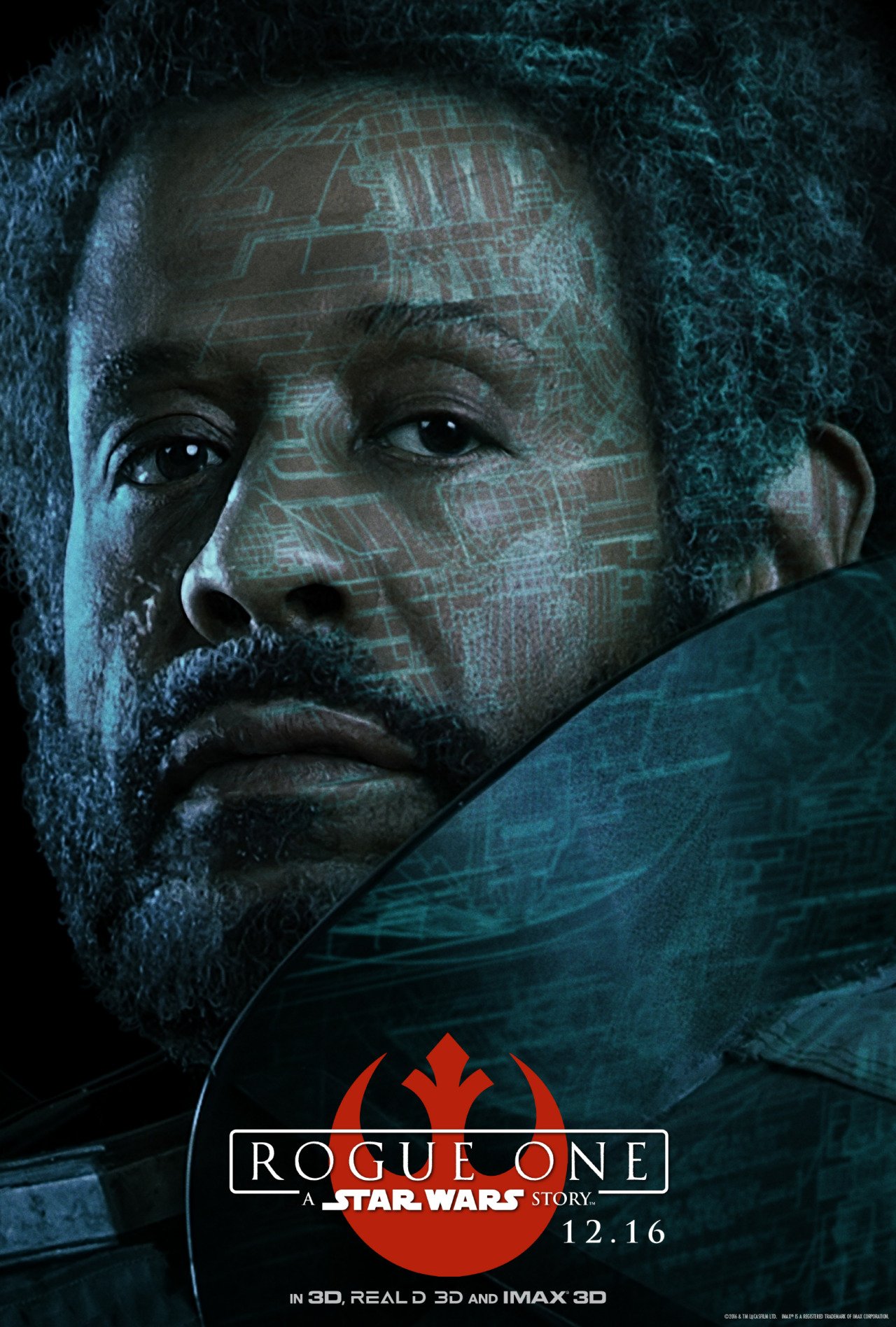
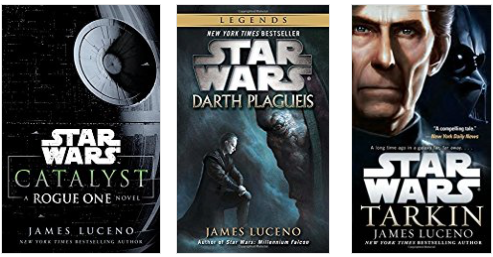
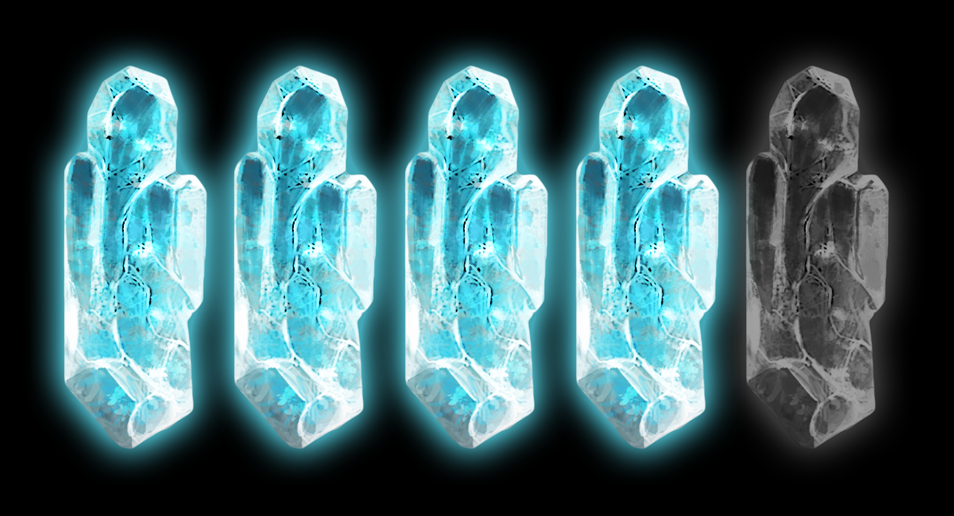
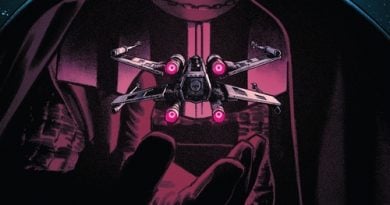

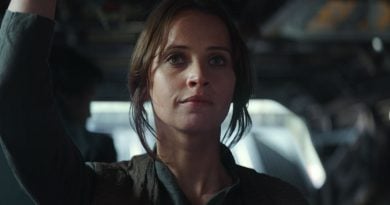
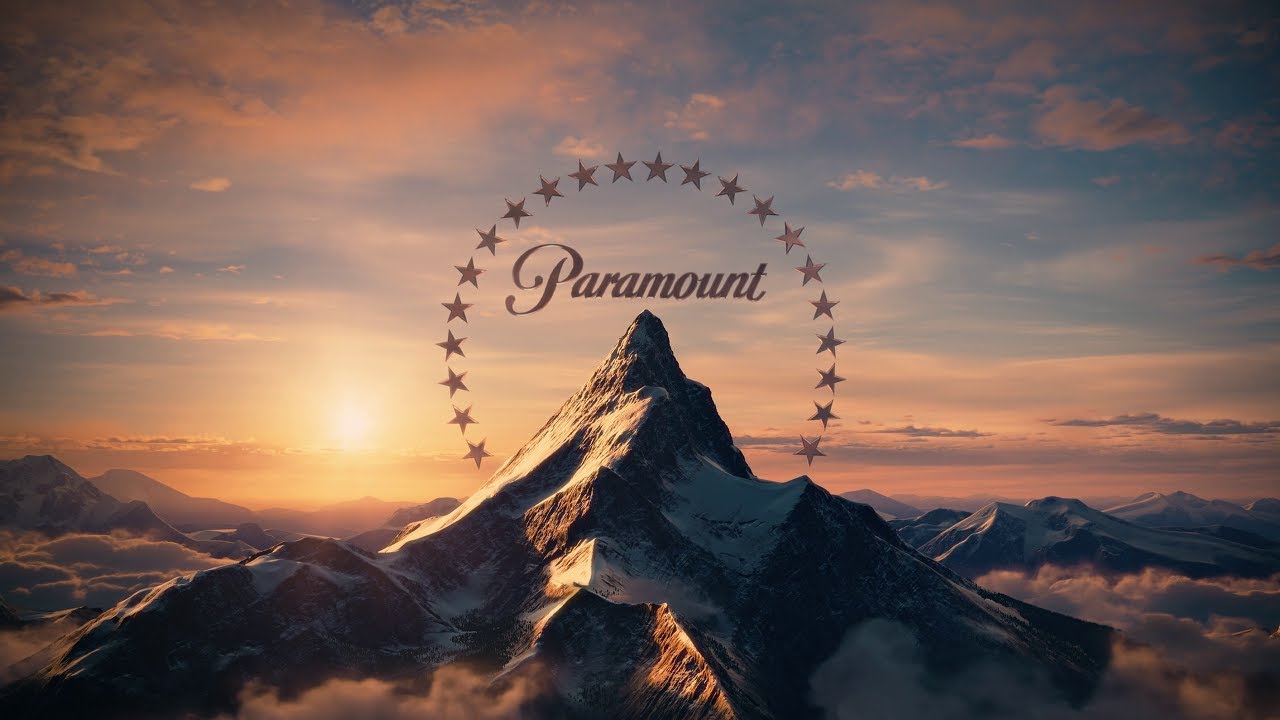


This is the 2nd Star Wars book I’ve read since Disney took over. Bloodline was great and I highly recommend Catalyst. The book does a great job of giving a citizen’s perspective of history as the Republic became the Empire.
After reading Bloodline and Catalyst I’m not sure how a last peace in the galaxy can be created.
so, is Kyle Katarn officially out as a possibility of returning from EU?
No, but he is not in Rogue One.
seems that would have been the best place to add him back in…even if just mentioned.
You can’t please everyone. If they add him in there, it just distracts from the story they are trying to tell. If they add him somewhere else, people will be mad his story is different.
As mainly a reader of the novels, he barely registered on my radar, so I was kind of surprised by the love people have for him.
Just a mention would’ve been enough. His back story of getting the plans in the EU would’ve fit perfectly! Of course, I’m biased. Lol
I am biased to liking Kyle Katarn too, having grown up with all of the Dark Forces and Jedi Knight games. However, I understand that they have to change and make everything flow better than just Jan Ors drops Kyle off through vent and he steals the Death Star plans under very lightly secured Imperial base.
Kyle Katarn is such a badass.
Seems to me that Kyle Katarn became Cassian Andor for the new movie. Although the backgrounds for Cassian and Jyn have been switched, iam really hyped about this movie. If the movie spawn a sequel, we might an adaptation of Dark force 2 where Cassian becomes a jedi knight.
we’ll see soon if they are pulling the character switch.
Yes.
i’m about half way through the audiobook(which is a top shelf production) and am very impressed. this is lost stars level quality so far.
Agree. Got the audiobook day one from my library and almost done. Top notch. Luceno spins a good yarn!
Luceno is great! I’d love to interview him someday!
Glad you like it! Heard from friends the audio book is also very well done.
At 56%. So far yet another predictable, bland and plodding Star Wars-novel that the great mass will gobble up. Nothing here the Rogue One trailers haven’t already insinuated. A fairly uninteresting attempt at explaining why it took so long with the Death Star. Luceno is the ‘master’ of run-on sentences, which is but one example of how SW needs authors, not writers, to expand and enhance the galaxy. With vague characterization, sloppy descriptions and not much of a SW-pace ‘Catalyst’ comes across as uninspired and uneventful, a cash grab to exploit those impatient for Rogue One (like myself). Hopefully the last half improves, curiosity must be sated even in the face of mediocre writing.
I’ve generally found this to be the case with SW novels; they aren’t great literature but I guess that’s not why people read them. I’ve read about 6 or 7 star wars novels so I can’t speak about all of them, but those I’ve read were badly written. If it has to be a sci-fi novel I’d rather pick up something like Cixin Liu’s ‘the three body problem’ or Hugh Howey’s ‘Wool’.
I came off a little too harsh, I see now. ‘Catalyst’ is definitely not among the worst SW novels, and Luceno is much better here than in ‘Tarkin’. Still, it should have been a more vital adventure.
There’s not really a big action piece so for those looking for something like that I could see where they might be disappointed. It’s much more about laying out relationships between characters. I really enjoyed the book. I thought Krennic was great and can’t wait to see him in the movie.
I was about to respond to your initial post myself and say to give it time. But I fully agree, the start of the novel on Vault and the early coaxing of Erso thereafter was plodding in my opinion, it just takes a little bit to get to the good parts which is unfortunate.
I’m looking forward to your next published work. When is it due to be released?
You don’t have to be a writer to criticize litterature. This is known. I know how hard it is to write fiction, but Disney should hire more above average authors to increase the quality of the New Canon. IMO of course.
You don’t have to be anything to be a critic. That’s why most peogle don’t like critics.
Keep in mind that most of these books are contracted in a way that the authors don’t choose the subject of what they write. Also they’re told what they can and cannot develope and narratives areally allowed.
Disney promoted a new EU connected to the films. We had hoped that meant authors would be free to create. What we get is filler that explains in more detail certain events. Catalyst is really the story of and why the Death Star was built. Lucent does a good job with what he was allowed to work with. He’s good at filying holes in Lucas’s narratives.
Not going to say what my opinion of the novel is, but I will say that it is an excellent read if what you’re looking for is what the relationship between Galen Erso and Orson Krennic is leading up to Rogue One, as well as what the characters of Galen & Orson are like individually in addition to Krennic’s role in the Empire and how he is perceived by others. It clears up motivations and will give you enough information to understand exactly why certain characters act the way they do. Furthermore, every fan has their own idea behind the galaxy and what not more specifically I mean when we watched A New Hope for the first time and heard Obi-Wan mention the Old Republic and Anakin Skywalker we all had our own inner movies and stories written as to what went on and then Ep 1 – 3 for better or for worse took it apart and grounded it. Luceno does the same thing with our idea about just exactly how the Death Star was built, but in a good way. He brings an interesting realism to the process of how such a super-massive structure could be built (logisitics, politics, resources). He takes whatever ideas we may have had surrounding it, and grounds them in a realism that I’d imagine almost everyone would be ok with because it makes so much sense. I still personally like Lords of the Sith more just because it deals with Vader and The Emperor more so that content is more interesting to me, but this is a great novel in and of itself for me mainly because of how it grounds everything in a realism (which is probably due to the fact that we’re not dealing with OP heroes w/ access to the Force but more of the boots on the ground / average folk who are unknowing pawns that to an extent mildly influence the bigger game but are blinded by their limited perspective)
Almost done reading this one… It is a long and winding road as is the case with James Luceno but I think it is less tedious than Tarkin and a much more interesting story overall… The lore of the kyber crystals, the politics behind the death star’s creation, and the sparks of rebellion featuring Saw Gerrera were all very captivating. On a random note, I was pleased that Catalyst brought the Ryn species into the new canon, which Luceno previously wrote into the expanded universe in his New Jedi Order books. He just slipped them into one little scene that had no impact or bearing on the rest of the story… at least so far. And that kind of makes me like the nod to his former creation even more. 4 out of 5 kyber crystals is about right.
https://uploads.disquscdn.com/images/be601d3eeb4493b9302730bfdf9893bf7b7232107151af83478a4c45406f9d95.png
Has Obitt?!?!